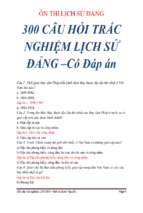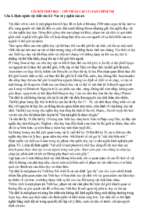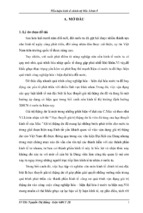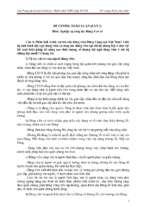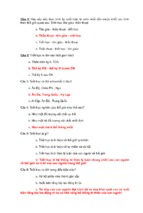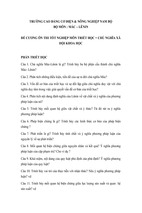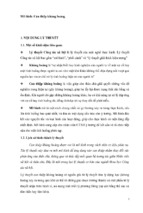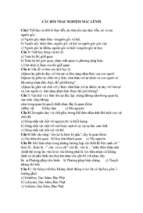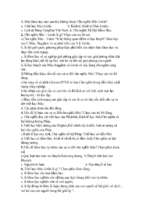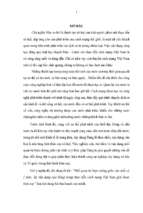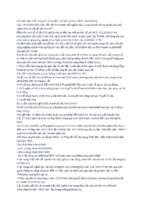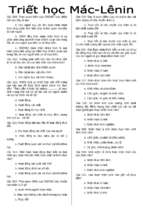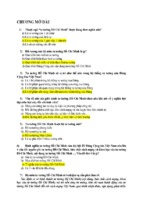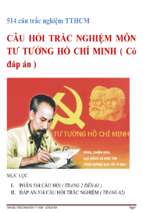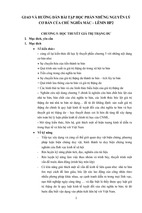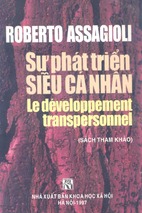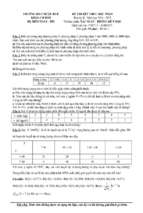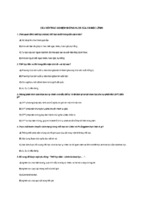Why Think? Z
This page intentionally left blank
Why Think? Z Evolution and the Rational Mind
RONALD DE SOUSA
1
2007
3
Oxford University Press, Inc., publishes works that further
Oxford University’s objective of excellence
in research, scholarship, and education.
Oxford New York
Auckland Cape Town Dar es Salaam Hong Kong Karachi
Kuala Lumpur Madrid Melbourne Mexico City Nairobi
New Delhi Shanghai Taipei Toronto
With oYces in
Argentina Austria Brazil Chile Czech Republic France Greece
Guatemala Hungary Italy Japan Poland Portugal Singapore
South Korea Switzerland Thailand Turkey Ukraine Vietnam
Originally published in French by Presses Universitaires de France as Evolution et Rationalite´ (2004).
Copyright ß 2004 Presses Universitaires de France. English translation copyright ß 2006
by Ronald de Sousa.
Copyright ß 2007 by Oxford University Press, Inc.
Published by Oxford University Press, Inc.
198 Madison Avenue, New York, New York 10016
www.oup.com
Oxford is a registered trademark of Oxford University Press
All rights reserved. No part of this publication may be reproduced,
stored in a retrieval system, or transmitted, in any form or by any means,
electronic, mechanical, photocopying, recording, or otherwise,
without the prior permission of Oxford University Press.
Library of Congress Cataloging-in-Publication Data
De Sousa, Ronald. [Evolution et rationalité. English]
Why think? : evolution and the rational mind / Ronald de Sousa.
p. cm.
Includes bibliographical references.
ISBN 978–0–19–518985–8
1. Knowledge, Theory of. 2. Evolution. 3. Reasoning. I. Title.
BD177.D413 2007
128’.33—dc22
2007009407
1 3 5 7 9 8 6 4 2
Printed in the United States of America
on acid-free paper
Preface Z
It’s fashionable to claim that we should trust our gut, rely on our
intuitions, and stop thinking too much. The book now in your
hands takes the question seriously: How is explicit human thinking
diVerent from the goal-directed ‘‘intelligence’’ of animals? How
does our own ability to come to quick, intuitive decisions—often
mediated by unreXective emotional responses—relate to reXective
thought? The quick responses of intuition often conXict with
reXective thought. Yet both have been honed and reWned by millions of years of natural selection. So it’s important to understand
how they both work, and what are their respective strengths.
Evolution itself has displayed a capacity to mimic intelligent
planning so uncanny that many people simply refuse to believe it
ever happened. That makes it worth asking what natural selection
and intelligent thought have in common. Why did the inventive
genius of the Wright brothers not enable them to design a 747
straight oV the bat? If we ignore the time scale, the path from the
Kitty Hawk ‘‘Flyer’’ to the supersonic airliner looks much like the
transition from the early Eohippus to the modern horse, Equus
Caballus: gradual, fumbling, step-by-step change, groping forward
by trial and error. How then are ‘‘rational’’ solutions diVerent from
those arrived at by the mindless processes of natural selection?
This book approaches this question by looking at our nature as
rational beings in the light of biology. We don’t usually accuse other
animals of being irrational, even when their instinctual responses
vi
Preface
prove fatal: to do so would add insult to injury. When an animal’s
responses didn’t work out, we allow that similar responses must have
been good enough in the long run to keep the species alive up till
now. But it was all done without discussing alternatives, debating
improvements, or mutual criticism. Only humans do all that. We
do it mostly by talking about it. But our ‘‘natural’’ answers to
hypothetical problems, especially those involving evaluation of
risk, are notoriously erratic. Human reasoning itself evolved, and
took a leap with the invention of language. And language depends
(ideally) on informational rather than only on straightforwardly
causal processes. Mistakes in reasoning, success or failure, are no
longer measured exclusively in terms of biological Wtness, in which
the only ‘‘value’’ is the reproduction of genes. Why should I care
that my genes get replicated? They are not me. I may have other
plans.
When canons of rationality can be articulated and debated,
disagreement generates a proliferation of individual human values.
The crucial transition to deliberation mediated by language is
therefore what makes possible, at one stroke, human rationality,
irrationality, and the wondrous, chaotic multiplicity of conXicting
human values. But where do we get those values? At the deepest
level, they have their roots in the very emotions that emerge out of
the interplay between our most basic responses in childhood and
the elaboration of reasoned ideas, which is what education is all
about. Fully to understand this is the goal of psychology and social
science. Both must be grounded an understanding of our biological
natures. The perspective oVered here is therefore a wholly naturalistic one. But if the picture presented in this book has any force, an
understanding of the highs and lows of our capacity for rational
thought and action can ground a virtually unlimited range of
possibilities for human Xourishing.
Acknowledgments Z
Ruwen Ogien originally encouraged me to set down these ideas,
and both he and Pierre Livet provided me with invaluable feedback
on the Wrst drafts of this book. I’ve also learned a great deal from
criticisms and comments from Joëlle Proust, Paul Dumouchel, and
Frédéric Bouchard. David Egan, playwright, philosopher, and elegant stylist, made many suggestions for improvement and saved me
from several inadvertent howlers. Peter Ohlin of Oxford University
Press has been a patient guide in the process of making the
book more readable, and his encouragement has been invaluable.
For the entire period during which I have been working on these
ideas, I have been the grateful recipient of Standard Grants from the
Social Sciences and Humanities Council of Canada. Last, but not
least, I am thankful to my daughter Qingting, not only for daily joy,
but for having permitted me to put this book out despite her fear
that as a consequence she would no longer be able to claim the
status of Middle Child.
This page intentionally left blank
Contents Z
1
2
3
4
5
Introduction 3
Function and Destiny 29
What’s the Good of Thinking? 56
Rationality, Individual and Collective 87
Irrationality 120
Notes 155
References 169
Index 181
This page intentionally left blank
Why Think? Z
This page intentionally left blank
Chapter 1 Z Introduction
Aristotle called human beings ‘‘rational animals.’’ It is all too
regrettably obvious, however, that we are frequently irrational. Yet
it would be hasty to reject Aristotle’s characterization outright.
Much of this book is concerned with sorting out how to make
sense of both our rationality and our irrationality. It is also about
what’s good about being rational, and why it’s worth the trouble.
To make a start on the latter question, consider Jack and Jill.
When Jill tackles a project, she is methodical and scrupulously
careful. She tailors her means to her ends. She looks only to the
best evidence and the soundest reasons. She is, then, you will agree,
as rational as one could be. Yet she fails. Jack, on the contrary, is
devoted to Non-Linear Thinking, which he interprets as requiring
regular consultation of astrological charts, the hexagrams of the Yi
Jing, and other magical omens. Rationality, he declares, is overrated. Irritatingly, he succeeds in what he attempts and loudly
trumpets his success.
Such things do happen. When they do, isn’t it enough to throw
you right oV the claims of rationality? What is it, actually, that is so
good about rational thinking?
This may seem an idle question. Surely the advantages of thinking
are obvious. And yet no product of human ingenuity can hold a
candle to the subtle and economical complexity of a single living
cell, let alone to the unfathomable organization of what is often
termed the most complicated object in the universe, the human
3
4
Why Think?
brain. Thought nowhere Wgures in the mechanisms of evolution
that have shaped life itself. Nor does it play any part in the
procedures used by most organisms to keep themselves alive.
Such marvels are not the fruit of any computation or planning:
they are merely the upshot of four billion years of natural selection,
constrained by the laws of physics, chemistry, and probability.
The precise details of the diversity of mechanisms involved
in natural selection are still a matter of dispute, but in the main
they are adequately summed up in the phrase made famous by the
biologist Jacques Monod (1972): chance and necessity. Nature
abounds in astonishing inventions such as the human eye, or the
intricacies of the mechanisms that turn food into over three hundred
diVerent kinds of cells that make up our bodies. The proponents of
the theory of Intelligent Design love to cite these, but they keep
having to pick new candidates as science cracks one mystery after
another. When a favorite example of the inexplicable is explained,
it must be replaced with a new mystery. If the ‘‘irreducible
complexity’’ of anything still unexplained had been consistently
used to posit the intervention of an Intelligent Designer, evolutionary science would have been abandoned as a waste of time before
it started. The wonder of nature’s ingenuity rests precisely on the
assumption that her most ingenious devices are all natural products
of evolution, owing nothing to intelligence. What, then, is the
point of thinking?
In approaching such questions, we should Wrst remind ourselves
that rationality does not guarantee success. Its advantage consists
merely in increasing the chances of success. This brings rationality
right into line with evolution, of which the very stuV, we might say
without much exaggeration, is probability. Natural selection has
perceptible eVects only in the context of large numbers. At the
level of statistical phenomena, probability governs the precise
interactions of chance and necessity. As for individuals, no matter
Introduction
5
how well equipped they might be to seize opportunities and face the
dangers that threaten them in every natural environment, survival is
never guaranteed. What biologists call an organism’s Wtness, its
probable survival and fertility, guarantees neither its survival nor
its fertility. No more, for that matter, than success is assured even in
the most minutely planned of intentional undertakings. In both
cases, the most we can claim is that the best-adapted organism no
less than the most elaborately worked-out plan will be the one most
likely to succeed. This fact will translate into meaningful observable
eVects only in the long run, at the statistical level.
In this essential respect, then, the upshot of rational planning
elaborated in intelligent thinking is the same as the upshot of
natural selection: in the long run, individuals increase the chances
of success in their respective undertakings. Furthermore, there is
every reason to think that the methods used by rational beings such
as we pride ourselves on being have themselves been shaped
over millions of years by natural selection. This process took place
over an enormous variety of circumstances—when our ancestors
lived in the ocean and when they lived on land, when they had to
succeed in catching prey and when they had to avoid their own
predators. Should we then assume that our strategies of inference
and discovery are invariably the best they could be? If not, can we
fall back on the thought that they are generally adequate, if
not actually optimal? Or should we, on the contrary, resign ourselves
to the possibility that the most seemingly ‘‘natural’’ epistemic
processes are often ill adapted to the circumstances of present day
life? If the more pessimistic hypothesis is right, can we at least still
count on our capacity for self-improvement? Given the way we
came by our faculty of thought, what reasonable expectations are
we entitled to?
The questions I have raised so far are of two kinds. A Wrst batch
takes the powers of rational thought for granted. Rational thought
6
Why Think?
is set up as a benchmark, by reference to which we might assess
the mechanisms of natural selection. The second batch, by contrast,
takes natural selection as its point of departure, in order to question
the viability and reliability of our modes of discovery, our rules of
inference, and our standards of proof—in short, of all the epistemic
strategies that natural selection has empowered us to devise and
endorse. Thus the evolutionary point of view suggests two perspectives: one looks at the logic of natural selection that gave us adaptive
functions, while the other scrutinizes the origins and the constraints
on the rationality of thought and action that supposedly characterizes intelligent human beings. These two perspectives form the
framework of what follows.
At the heart of both is the idea of rationality. Let me then begin
by attempting to cast a little light on the signiWcance of that notion.
Rationality is generally thought to be a good thing, although the
occasional dissenting voice is heard to deplore it as rigid, narrow,
linear, or even—most horribly—‘‘phallogocentric.’’ What does
rationality actually mean?
Z
1.1 Two Senses of ‘‘Rationality’’
At Wrst sight it seems obvious that the ascription of rationality is
conWned, like its opposite irrationality, to thought and action and
to organisms capable of both. Talk of rationality is not appropriate
in connection with events governed purely by the laws of physics,
even if such events involve a rational being. Suppose a man
accidentally stumbles and falls into a clump of nettles. We wouldn’t
label him ‘‘irrational,’’ for the incident was not a chosen act. It was
a mere event, implicating the person not as an agent but merely as a
physical object, subject to the laws of gravitation and inertia.
We speak of a falling object as ‘‘obeying’’ the law of gravitation, to
Introduction
7
be sure, but disobeying the law of gravitation isn’t really an option.
That sort of obedience is neither rational nor irrational.
What this example brings out is that the word rational has two
senses, marked by two diVerent contraries. In the categorial sense,
the contrary of rational is arational, a term that applies to behavior
that is due neither to choice nor to thought. The notion of choice,
in this context, implies nothing in particular about deliberation or
free will, but merely refers to events that are caused in a certain way.
For an occurrence to be a matter of choice in the sense intended,
its causes must include reasons. Reasons, at a Wrst rough level of
approximation, provide explanations by appealing to certain goals,
norms, or values.
The second, normative sense of the word rational contrasts with
irrational. It implies that a belief or behavior was appropriately
grounded in speciWc reasons, norms, or values. In this second sense,
an agent who is not rational is in some sense defective in respect
of thought or action. Irrationality is a normative notion: its ascription commonly involves a certain sort of reproach, complaint, or
criticism. What sort of criticism is a question that will require close
scrutiny. For one can criticize a landscape for being dull, or a fruit
for being unripe, but complaints of that sort ascribe nothing like
irrationality to landscapes or to fruit.
On pain of paradox, the word rational cannot be taken in
its normative sense in Aristotle’s characterization of humans as
rational animals. The formula makes perfect sense, however, if it
is interpreted in the categorial sense. Which is to say that if human
beings can indeed be described as rational animals, it is precisely in
virtue of the fact that humans, of all the animals, are the only ones
capable of irrational thoughts and actions.
The distinction just drawn gives rise to a diYculty, however. If
categorial rationality cannot appropriately be ascribed to events that
are suYciently explained in terms of natural laws, does this mean
8
Why Think?
that human behavior escapes the determination of natural laws
altogether? One might take this in either of two senses. On a
more modest interpretation, it would mean that the laws of physics,
chemistry, or any other science—including the laws of probability—that explain the behavior of inanimate objects are insuYcient
to explain that of rational beings. Rational behavior would then
belong in a zone left fallow by the laws of nature and mathematics.
Someone might oVer the behavior of a chess player as an instance of
something that can be explained only in terms of the rules of the
game, and rules are not laws of nature. A stronger version would
insist that the behavior of rational beings actually transgresses some
natural laws. But that thesis would be absurd because to claim that a
‘‘transgression’’ of laws of nature has occurred is to posit a miracle.
Or, more reasonably, it amounts to an admission that we hadn’t got
the alleged laws quite right in the Wrst place.
Some philosophers, such as Kant and Bergson, have clung to the
thought that free will transcends the natural world without actually
violating the laws of nature. But this attempted solution is bred in
bad faith. For talk of transcendence is generally a way of trying
to paper over a contradiction with a spot of jargon. Better to acknowledge that regardless of intelligence or rationality, human beings are
indeed subject, like everything else, to the laws of nature. The
human diVerence must be sought among natural facts, and not in
some hope that natural facts might be transcended.
The evolutionary perspective maintains that life arose about four
billions years ago from chemical conditions that are still not fully
understood, but of which one can safely presume that they included
no phenomena that could be labeled either rational or irrational.
It follows that at some point—or perhaps gradually, during a long
transitional phase—phenomena that could be classed as rational
succeeded others that could not reasonably be so labeled. By similar
reasoning, a transition of the same kind must be supposed to take
Introduction
9
place in the course of development in every individual human
organism. For each of us begins life as a single-celled organism,
the zygote that results from the fusion of the parental gametes.
As that cell and its descendents undergo successive divisions,
according to the laws of physics and chemistry that govern those
processes, they undergo a series of metamorphoses that at some
point gives rise to an organism capable of reasoning, that is, a
rational being in the categorial sense.
If we start from the thought that rationality is typically applicable
to thought and to action, we can characterize two crucial metamorphoses, both in the evolutionary process and in the course
of individual development. One took us from the mere detection
of stimuli to the capacity to represent objects; the other took us
from tropisms, or automatic behavioral responses, to the capacity to
form and act on desires and intentions.
From Detection to Representation
Each living cell, and therefore every multicellular organism, is
endowed with some capacity to detect what might be useful or
harmful to it. One could call this ‘‘sensibility,’’ but the notion I have
in mind is meant precisely to contrast with the ideas of consciousness and knowledge evoked by this word. It is better to speak simply
of a ‘‘detecting function’’ in order to underline the purely functional
character of the faculty in question. The existence of a transition
between the detecting function and its rational successor then raises
the following questions: At what stage of phylogenetic evolution,
and at what stage in the development of each adult to whom
rationality is unquestionably ascribed, must we speak no longer of
simple detection, but of belief, knowledge, or representations?
What are the supplementary capacities that are crucial to this
transformation, and how do they arise?
- Xem thêm -

